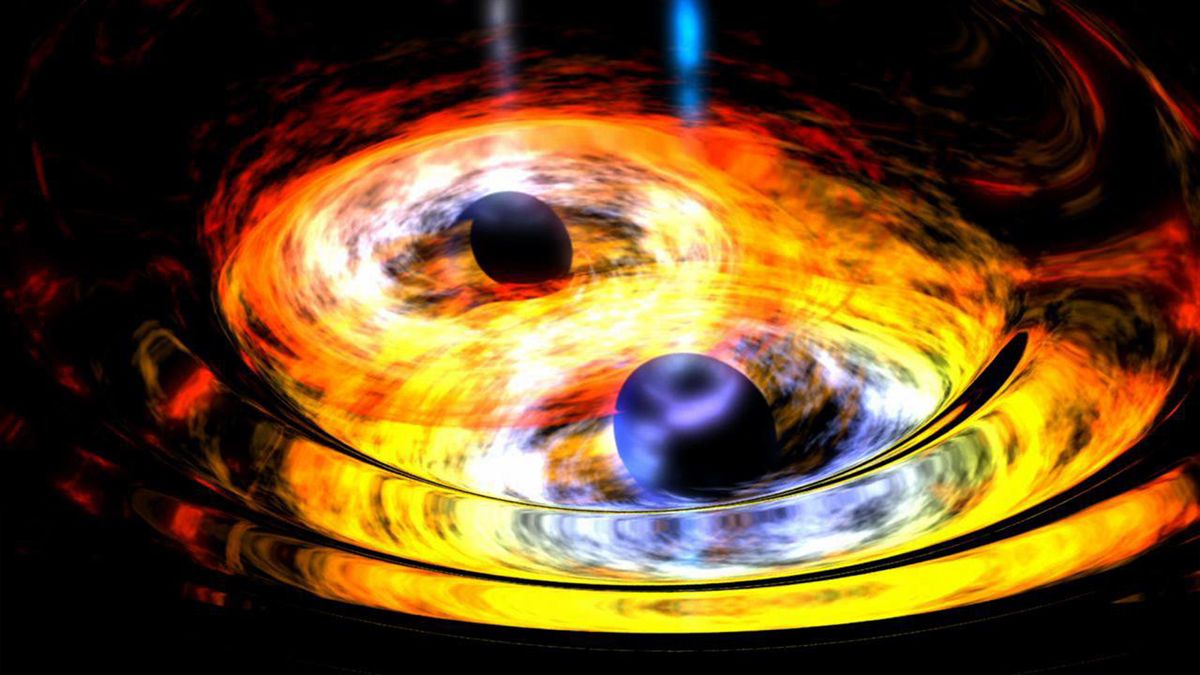Science
Related: About this forumNewly discovered black hole 'speed limit' hints at new laws of physics
By Anna Demming published 5 days ago
When supermassive black holes barrel toward collision, they can reach speeds of up to 1/10th the speed of light, new research suggests.

An artist's impression of two black holes subject to each other's gravity.
Simulations reveal a tipping point between the black holes merging and scattering where the recoil velocity reaches a maximum. (Image credit: NASA)
Researchers have identified a new speed limit for the universe’s most extreme collisions. According to a study published in the journal Physical Review Letters, the "maximum possible recoil velocity" for colliding black holes exceeds a whopping 63 million mph (102 million km/h) — about one-tenth the speed of light. This peak occurs when the collision conditions are at the tipping point between the two black holes either merging together or scattering apart as they approach each other, according to the study authors.
Next, the researchers hope to mathematically prove that this velocity cannot be exceeded using Einstein's equations for relativity, posing potential implications for the fundamental laws of physics.
"We are just scratching the surface of something that could be a more universal description," study co-author Carlos Lousto, a professor of mathematics and statistics at the Rochester Institute of Technology (RIT) in New York, told Live Science. This newly discovered speed limit could be part of a larger set of physical laws that affect everything "from the smallest to the largest objects in the universe," Lousto said.
Quakes in the fabric of space-time
When two black holes pass close by each other, they will either merge or swerve around their common center of mass before flying apart. Whether the black holes fly apart or spiral into each other depends on their separation at the point of nearest approach.
More:
https://www.livescience.com/physics-mathematics/newly-discovered-black-hole-speed-limit-hints-at-new-laws-of-physics
JoeOtterbein
(7,797 posts)...And for my favorite DU poster!
PoindexterOglethorpe
(26,896 posts)Wow! That's amazing. I'm impressed.